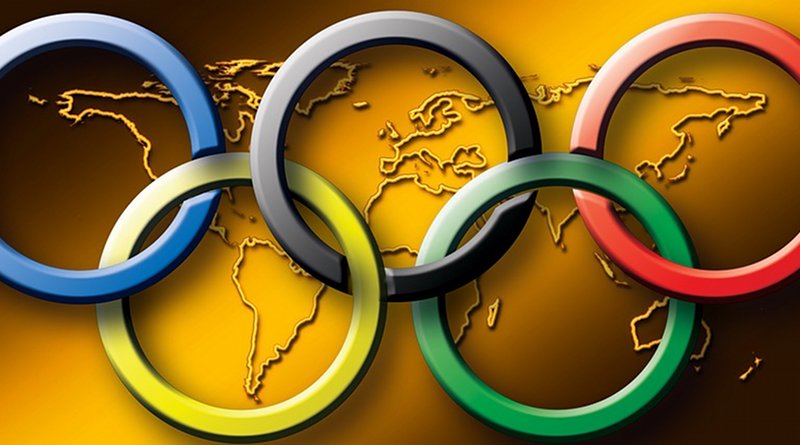MGIMO Meeting Highlights Russian Worries About Circassian Campaign Against Sochi Games – Analysis
By Paul Goble
Although a Carnegie Moscow Center seminar three weeks ago concluded the Circassians “do not pose a serious threat to the Olympics in Sochi,” a conference at the Russian Foreign Ministry’s training academy held last week on the very same subject suggests that many in Moscow remain extremely nervous on this score.
A majority of participants at a March 3rd conference at Carnegie’s Moscow Center entitled “The Circassian Question and the Olympics at Sochi” concluded that “at the present moment ‘the Circassian question’ does not represent a serious threat to the Olympic Games in Sochi,” although some said it could become one (www.kavkaz-uzel.ru/articles/182443/).
That meeting was held because of the increasing efforts by Circassian activists and their supporters in the United States, Georgia and other countries over the past several years to shift the venue of the 2014 games because the competition would take place on the site of the Russian genocide of the Circassians in 1864.
Like the Carnegie Center conference, most analysts have dismissed this Circassian effort as an irritating distraction given Putin’s commitment to the games and the money and time that Moscow has already invested in transforming the southern Russian city of Sochi into the site of a winter Olympiad.
But some in Moscow are now clearly worried that the Circassian campaign, along with the danger that militants from nearby regions of the North Caucasus, could in fact disrupt the games or at least cause some potential participants and attendees to decide not to come to Sochi in 2014.
Last Thursday, the Moscow State Institute of International Relations (MGIMO), the prestigious training academy of the Russian foreign ministry, held a conference on “’The Circassian Question’: Historical Memory, Historiographic Discourse and Political Strategies” to examine this issue yet again (www.kavkaz-uzel.ru/articles/182789/).
Most of the participants who included leading scholars from around the Russian Federation focused on the events of the 19th century, but as Kavkaz-Uzel.ru noted, “particular interest” was generated by the presentation of Aleksandr Cherevishnikov, an MGIMO scholar, who talked about current Circassian political strategies.
He argued that “hardly anyone” thinks that the Circassians will be able to block the games – “although Russia has many weakspots,” including the decision to hold the games on the 150th anniversary of the Circassian tragedy—the Circassians won’t be able to achieve even that level of resistance that there was in Beijing because “Russia is not China.”
According to Cherevishnikov, too much has been made of the Circassian effort against the Sochi games. Relatively few people are involved, and Turkey, in which many of them have placed such hope because of its large Circassian population, is unlike to put pressure on Moscow in this regard.
And he concluded that “if the [Circassians] abroad cannot do anything, then local activists will not be able to create serious problems.”
A second speaker, Naima Neflyasheva, a senior scholar at the Academy of Sciences Center for Civilizational and Regional Research, said that one of the major reasons that political groups were able to exploit the Circassian quesiton was because “information about the tragedy of the Adygs [Circassians] has been limited.”
While Soviet guidebooks noted that Circassians once lived in these regions and created a great culture, she continued, “today however it is said that the territory is rich in archaeological monuments which belonged to some people or other,” without any clear designation that it was precisely the Circassians who were involved.
And a third speaker, Samir Khotko, a senior scholar at the Adygey Republic Institute of Humanitarian Research, touched on another theme Circassian activists have raised. He noted that the Russian authorities have not done anything to help those Circassians who would like to return from the diaspora.
“Undoubtedly, there are not so many who want to come back,” he said, “but people nonetheless must be offered this opportunity.”
The conference participants adopted a declaration calling for further academic research on what it called “the tragedy of the autochthonian Circassian population of the North Western Caucasus” in the 1860s which was “ended by the forced mass exodus of the Circassians” (www.elot.ru/main/index.php?option=com_content&task=view&id=2320&Itemid=1).
“Forgetting this tragedy is impermissible,” the declaration continued. “What is required is its careful and what is extremely important professional study and assessment. In this, it is necessary to isolate the work of professional scholars and experts from current politics. This will enrich both science and political practice.”
The declaration also noted that the participants had agreed to form a working group of Caucasus specialists “which will consider all approaches” to the Circassian issue and offer “paths of its resolution” by “formulating concrete proposals which will make possible the reduction of the sharpness of the political conflict around the Circassian question.”
“Without pre-deciding the results of this activity,” the participants concluded, “we note thatwe consider its final result as part of a large work directed at the strengthening of the [non-ethnic] Russian civic nation and the resolution of the contradictions which inevitably arise in a spirit of solidarity, responsibility, constructive cooperation, and dialogue.”
This MGIMO conference would never have taken place and its declaration would never have been issued if the Circassians in the diaspora had not launched their drive to shift the venue of the 2014 Olympics away from the site of the 1864 genocide, and consequently, this event represents a breakthrough victory for those activists, even if it does not yet pre-ordain a final one.

